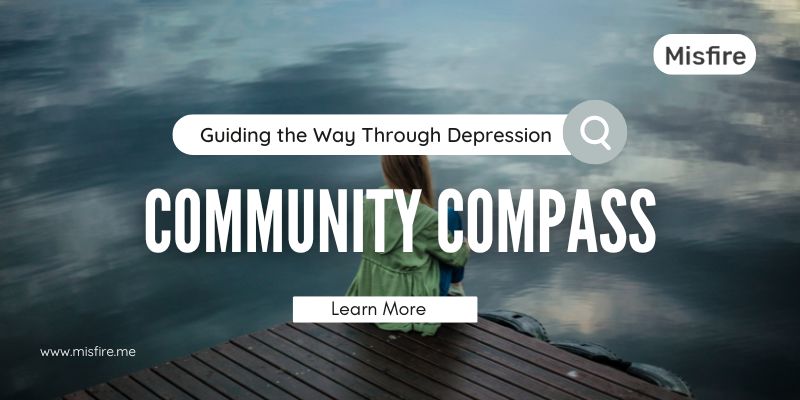Depression is a journey through a landscape that often feels bleak, unpredictable, and isolating. But just as a compass guides a traveler to their destination, a community compass can guide those struggling with depression towards a path of healing and hope.
Understanding Depression
Depression is more than just a bad day or a temporary feeling of sadness. It’s a persistent condition that affects the mind, body, and spirit. Symptoms can include a loss of interest in activities, changes in appetite, sleep disturbances, fatigue, and feelings of worthlessness or guilt. It’s a common but serious mood disorder that requires understanding and treatment.
The Role of Community
A community plays a pivotal role in supporting individuals with depression. It can provide a network of care, understanding, and resources. Community support can come in various forms:
- Professional Help: Access to mental health professionals who can offer therapy, medication management, and personalized care plans.
- Peer Support: Groups where individuals can share experiences and coping strategies, offering mutual understanding and encouragement.
- Education: Programs that inform and educate about mental health, helping to reduce stigma and promote early intervention.
Compass Behavioral Health: A Model of Community Support
Compass Behavioral Health exemplifies the concept of a community compass. Their approach includes:
- Evidence-Based Treatment: Offering therapies like Dialectical Behavior Therapy (DBT) that have been proven effective in treating depression.
- Financial Accessibility: Working with insurance providers to ensure that treatment is affordable for all.
- Building Community: Creating spaces for communal meals, group exercise, and family programs to foster a sense of belonging.
- Continuous Learning: Partnering with institutions like Duke University to stay at the forefront of mental health treatment.
- Cultural Competence: Housing a diverse team to provide care that respects the unique needs of each individual.
Navigating the Path Ahead
For those navigating depression, the journey may seem daunting, but it’s important to remember that you’re not alone. Here are some steps to help you find your way:
- Seek Professional Help: Don’t hesitate to reach out to mental health professionals who can guide you through treatment options.
- Connect with Others: Find a support group or community program where you can connect with others who understand what you’re going through.
- Educate Yourself: Learn about mental health depression and its treatments. Knowledge can empower you to make informed decisions about your care.
- Practice Self-Care: Engage in activities that promote well-being, such as exercise, meditation, and healthy eating.
- Be Patient: Healing takes time. Celebrate small victories and be kind to yourself on the tougher days.
Conclusion
Depression may be a complex and challenging condition, but with the right tools and support, it’s possible to navigate through it. The community compass concept reminds us that together, we can create a supportive environment that guides individuals towards recovery and well-being. Remember, finding your true north is possible, and you don’t have to walk the path alone.

